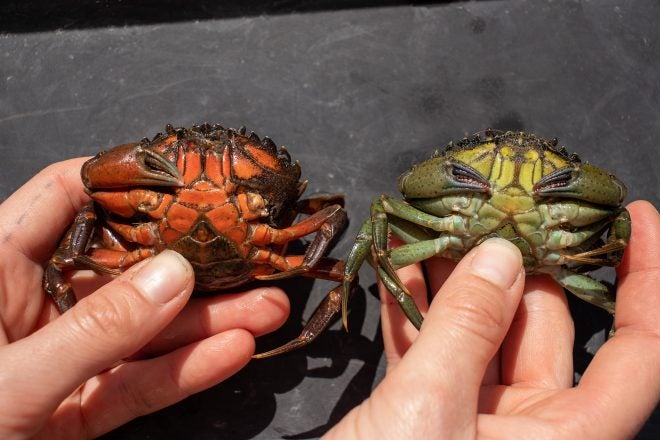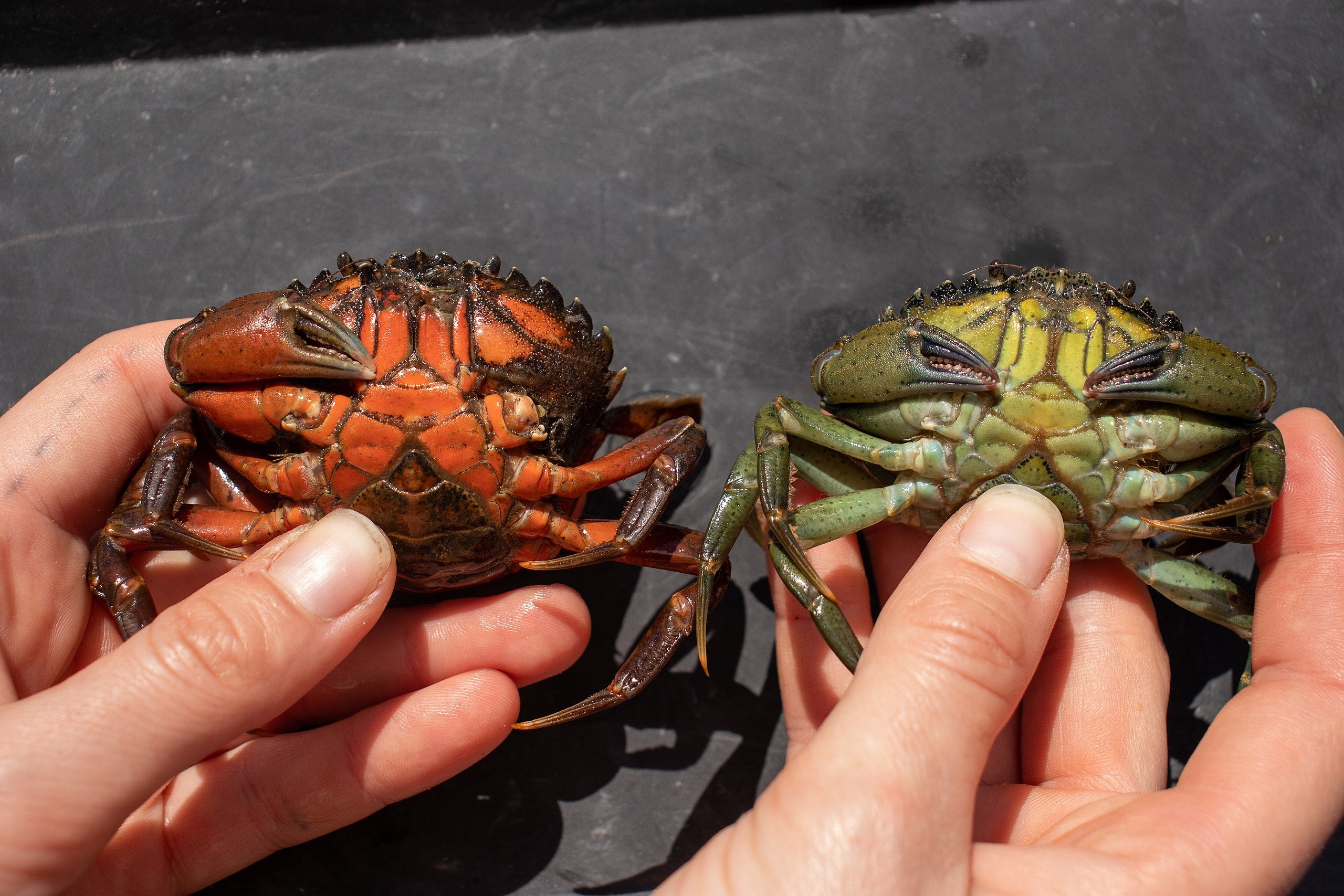
The Alaska Division of Fish and Recreation (ADF&G), with the Metlakatla Indian Group (MIC) and Nationwide Marine Fisheries Service (NOAA Fisheries) has introduced to the general public that invasive European inexperienced crabs (Carcinus maenas) have been verified inside the state of Alaska for the primary time. As of August 9, 2022, within the Annette Islands Reserve in southern Southeast, Alaska, the MIC Division of Fish and Wildlife has trapped 32 stay European inexperienced crabs from Tamgas Harbor. Different surveys within the adjoining Smuggler’s Cove solely resulted to find lifeless invasive inexperienced crabs. European inexperienced crabs are categorised as a banned invasive species within the state of Alaska.
The European inexperienced crab (Carcinus maenas) is taken into account one of many prime 100 worst invasive species globally. This invasive species that arrived within the US on the east coast in the course of the 1800s in European ship ballast water. Since arriving within the Cape Cod space the species has unfold northward inflicting ecological and financial harm alongside the way in which. The inexperienced crabs have been then discovered to have unfold to San Francisco Bay in 1989 and now have unfold north alongside the west coast as properly. These crabs pose a risk to native shellfish, eelgrass, and important estuary habitat.
You possibly can assist by reporting invasive species. Go to the ADF&G web site for details about tips on how to establish these invasive crabs. When you discover a crab or crab shell you think to be a European inexperienced crab, slightly than accumulating it, take many photographs of the crab subsequent to a key, coin or bank card for scale. Banned invasive species might not be collected, possessed or transported and not using a legitimate allow.
To report your observations, go to https://www.adfg.alaska.gov/index.cfm?adfg=invasivespeciesreporter.major or name the Invasive Species Hotline: 1-877-INVASIV.
To submit photographs and for extra details about invasive species contact: Tammy Davis, ADF&G Invasive Species Program coordinator: [email protected]v or (907) 465-6183.

